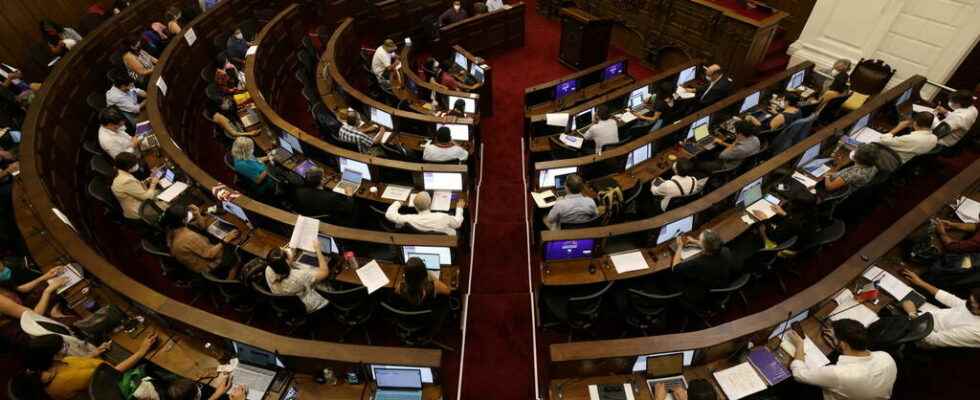After a year of work, the Chilean Constituent Assembly has finished drafting the new Constitution which should replace the one currently in force, written under the dictatorship of General Pinochet. The new text is delivered this Monday, July 4 to President Gabriel Boric. Now members of the assembly are campaigning to present the new fundamental charter to Chileans before the September referendum.
Developed for a year, the draft new constitution is officially handed over this Monday to Chilean President Gabriel Boric. The text, which establishes through its 388 articles new social rights in the wake of the unprecedented social uprising of October 2019, will have to go through the referendum stage in a polarized country. And two camps are now clashing, reports our correspondent in Santiago de Chile, Naila Derroisne : those who defend it and those who oppose it.
Considered avant-garde or too radical
For Alondra Carillo Vidal, a leftist and feminist constituent, the new Constitution is historic in more ways than one. “ It offers the possibility of a social state guaranteeing the fundamental rights of the population, of women and of sexual and gender minorities. It changes our relationship to nature and proposes a future that will no longer be neoliberalism, nor the model of natural resource extraction. “, she rejoices.
Even though he participated in its elaboration, Luciano Silva Mora, evangelist pastor, from the center-right, will vote against the new Constitution. ” This text is totally radical, purely statist and it will promote the expropriation of land, he advances. What this Constitution lacks is more freedom to ensure a free, regulated market that would allow us to have goods and services. And according to him, the text is not representative enough. “ Large and small entrepreneurs, religious groups are not considered in the new Constitution “, he believes.
Alondra Carillo Vidal sees things differently. ” It is a Constitution which will no longer guarantee privileges to the minority which governed for the majority “, she underlines. If approved, the text would put Chile at the forefront in several areas. The right to abortion will notably be enshrined in the Basic Law.
Compulsory referendum on September 4
The Chileans still have two months to make up their own mind. Because in the end, they are the ones who will have the last word in the September 4 referendum where voting will be compulsory. In the meantime, the Constituent Assembly, made up of 154 independent citizens or affiliated with political parties, will be dissolved, just one year after starting its work, on July 4, 2021. Chileans will have to say whether they accept or reject this news. Constitution. If the rejection prevails, the current Basic Law, dating from the time of Augusto Pinochet’s dictatorship, will remain in force.
